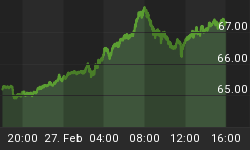Below is a snippet from the latest weekly issue from www.GoldForecaster.com | www.SilverForecaster.com
Spain's savings spent?
 The Banco de Espana's holdings of foreign currencies and gold have fallen to €13.2bn (£9.02bn), equivalent to 12 days of imports, according to their website. Last week saw a continuation of their sales of gold of, possibly, in the region of 10 to 15 tonnes more.
The Banco de Espana's holdings of foreign currencies and gold have fallen to €13.2bn (£9.02bn), equivalent to 12 days of imports, according to their website. Last week saw a continuation of their sales of gold of, possibly, in the region of 10 to 15 tonnes more.
 Over the past two months the Banco de España has sold off 80 tonnes of gold. The bank has reduced its holdings of U.S. Treasuries, British gilts, and other investments at a similar rate. Total reserves have now fallen by two thirds from €41.5bn in early 2002. Greece and Portugal have seen a similar drop.
Over the past two months the Banco de España has sold off 80 tonnes of gold. The bank has reduced its holdings of U.S. Treasuries, British gilts, and other investments at a similar rate. Total reserves have now fallen by two thirds from €41.5bn in early 2002. Greece and Portugal have seen a similar drop.
The Banco de España refused to comment on the sales, or why they have pursued the policy of using up savings when they could have used other means.
It appears the bank has been draining the reserves to help finance the current account deficit, which has ballooned to 9.5% of GDP, reaching €8.6bn in January alone. It appears that the current account is completely out of control. Spain has the worst deficit in its history and worse than any other country in the western world. Should Spain face any form of banking crisis, Spain will find the situation nearly impossible to handle. For instance, should a housing slump occur, a banking crisis is likely to follow. The first signs of a housing slump are emerging as the E.C.B. raises interest rates already up seven times to 3.75% since December 2005. The shares of Valencia builder Astroc have fallen 77% since February, setting off a sharp slide across the sector, with knock-on effects on banks with mortgage exposure.

It is often assumed that reserves no longer matter once a country has joined the €, but this ignores a crucial element in the workings of the European Monetary Union system. It is responsibility of the 13 national central banks to act as lender of last resort in a crisis, even though they have no control over interest rates. Morgan Stanley said construction accounts for 17.7% of G.D.P., even higher than the 15% peak reached in Germany after reunification - a boom-bust story that left the German Banks emasculated for years.
Spain's private sector has amassed $600bn (£300bn) in foreign debts. Corporate borrowing is 100% of GDP. The overall stock of mortgages has increased six-fold in a decade. Household debt has reached 120% of disposable income, largely on floating rates.
Japan was able to uphold its banking system in the post-bubble slump of the 1990s because the government could guarantee deposits. You can't do that in the Eurozone because there is no government to turn to.
Each country is on its own, when it comes to reserves. That is why the overall reserves of the Eurozone system have remained stable. France retains (€76bn), Germany (€86bn), Italy (€59.5bn) and have all kept holdings these levels since the launch of the €.
The ECB may intervene only if the crisis spreads across the Eurozone, and it is forbidden from bailing out the member states. The International Monetary Fund warns that the structure leaves E.M.U. exposed to "systemic financial risk". Consequently, reserves are a key defense for each state, hence the E.M.U. rule that national banks retain the lion's share of reserves. The ECB has a token 13%.
At the moment Spain is in fair condition: -
 Growth was 4% in the first quarter.
Growth was 4% in the first quarter.- The budget surplus is 1.8% of GDP.
- The export share is holding up.
- But house prices have nearly tripled since 1995. A law to control property speculators has been passed in Madrid. Now, house price growth has clearly peaked and is decelerating quickly.
The government cannot devalue its way out of trouble, so it will have to deflate.
The irony is that gold has its greatest value after a crisis has exploded, not just ahead of it. Will we see more sales of Spanish gold? These are not sales to adjust reserves, as has been the stated reason why the Eurozone banks are selling gold, they are because Spain is headed to difficult days. Let's see how much more will be sold?
![]()
Please subscribe to: www.GoldForecaster.com for the entire report.















